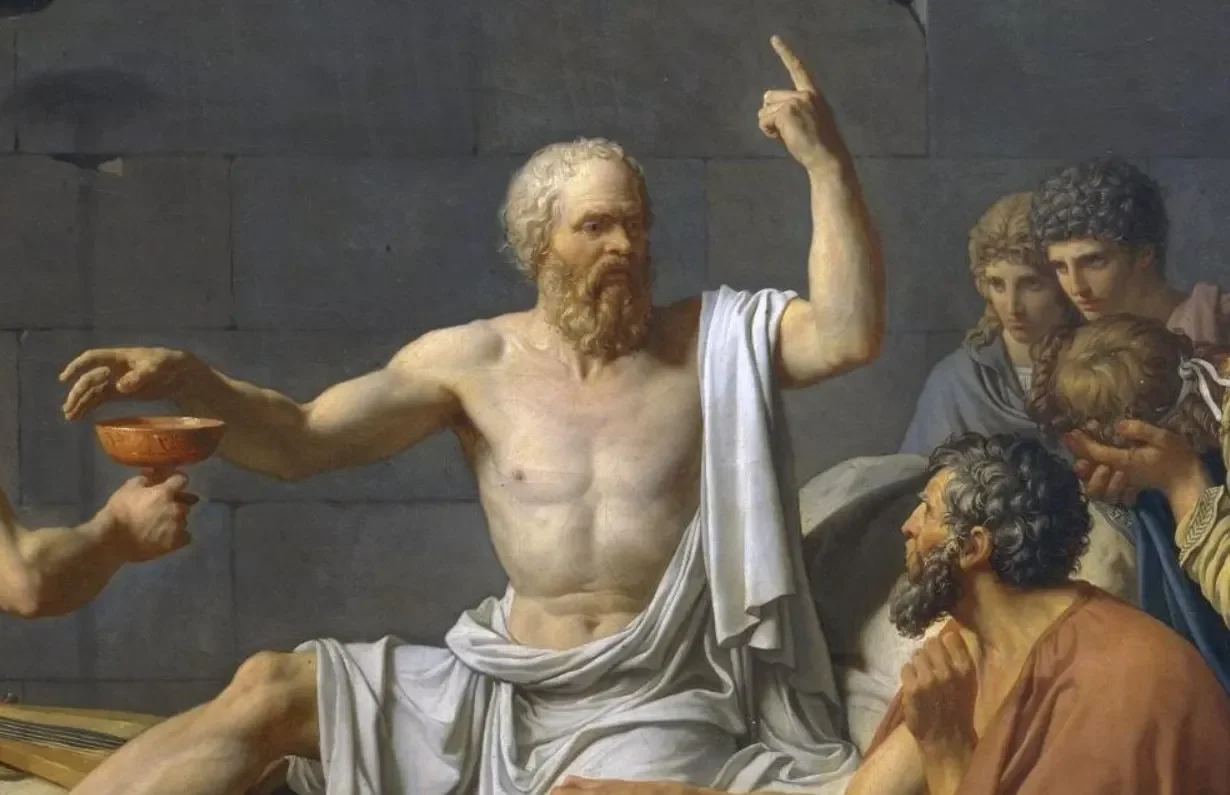Big Ideas: Socrates
The courage to question.
If the Buddha turned the mind inward to understand suffering, Socratesturned the mind outward — toward reason, truth, and moral integrity. He didn’t leave behind any written words only questions. Yet his way of thinking reshaped the Western world. He made philosophy not a doctrine to believe, but a method to live by.
The Big Idea
Wisdom begins with knowing what you don’t know.
True understanding isn’t about certainty, but the courage to keep questioning — yourself, your society, and the assumptions that shape your life.
Why It Mattered
In 5th-century BCE Athens, philosophy was often a game of cleverness, a way for educated men to win arguments in the marketplace. Socrates changed that. Standing barefoot in the agora, he asked ordinary people what they believed and why. What is justice? What is courage? What makes a life good?
His questions were disarming and considered dangerous by some. By exposing how little people truly understood their own beliefs, he revealed that ignorance was not shameful, but pretending to know was. His method — the elenchus, or Socratic questioning — wasn’t about winning debates, but awakening self-knowledge.
Socrates believed that every person has a moral duty to think clearly and honestly. he is believed to have said, “The unexamined life, is not worth living.” For that belief — and for questioning the moral complacency of his city — he was condemned to death. But his refusal to compromise his principles made him philosophy’s first martyr for truth.
The Legacy
Socrates gave philosophy its conscience. Without him, there would be no Plato, no Aristotle, no Western tradition of rational inquiry. He shifted the focus from the stars above to the heart within, from cosmic speculation to ethical reflection.
His influence runs deep in the modern world: in critical thinking, education, ethics, and even psychotherapy. Whenever someone asks “why?” instead of accepting “that’s just the way it is,” they’re speaking the language of Socrates.
He showed that thinking is a moral ac, a defence against manipulation, complacency, and self-deception. To live well, he taught, we must learn to question well.
In Our Time
If Socrates walked through today’s world, he might not be silenced by law — but he’d still make powerful enemies.
In a time when “free speech” is loudly defended yet quietly undermined, his questions would cut to the bone. He’d ask why truth has become partisan. He’d ask why disagreement is treated as disloyalty. And he’d remind us that freedom of expression means little when those in power decide which voices count.
In the United States in 2025, the language of liberty has been twisted into a tool of control. The same political movements that shout about censorship also seek to gag dissent, intimidate journalists, and rewrite public truth — echoing the tactics of authoritarian regimes from Moscow to Ankara. The threat today isn’t only from governments, but from the culture of fear and conformity that grows when facts become negotiable.
Socrates would see familiar patterns: leaders who prize loyalty over honesty, citizens who prefer comfort to truth, and a public sphere where noise replaces dialogue. His method — slow, probing, uncomfortable conversation — would be the last thing our age wants, and the first thing it needs.
To question sincerely, in such a climate, is still an act of courage.
The Essence
“The unexamined life is not worth living.” — Socrates, Apology
To question is to care — about truth, about virtue, about how to live.
And perhaps the bravest thing we can do in an age of easy answers is to admit that we don’t have them all.

